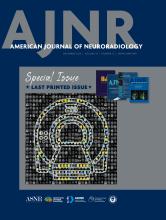Case of the Week
Section Editors: Matylda Machnowska1 and Anvita Pauranik2
1University of Toronto, Toronto, Ontario, Canada
2BC Children's Hospital, University of British Columbia, Vancouver, British Columbia, Canada
Sign up to receive an email alert when a new Case of the Week is posted.
June 4, 2012
GM1 Gangliosidosis (Adult-Onset Type)
- Lysosomal disease of autosomal recessive inheritance, caused by a deficit in the beta-galactosidase enzyme. Two different forms: GM1 gangliosidosis, a neurovisceral disease; and Morquio's disease, a predominantly skeletal disorder.
- The onset of the adult form ranges from 3 to 30 years. The disease is characterized clinically by dysarthria, gait disturbance, and dystonia. GM1 gangliosidosis must be considered as a cause of early-onset generalized dystonia, particularly in patients with short stature and skeletal dysplasia.
- Key Diagnostic Features: Bilateral, symmetric, high-intensity signal on proton-density, FLAIR, and T2-weighted sequences in the basal ganglia, mostly in the putamen. Marked neuronal loss with secondary gliosis in the putamen and the head of the caudate nuclei is assumed to be responsible for MRI findings. Dilatation of the anterior horns of the lateral ventricles and cortical atrophy have also been described in the adult-onset form.
- DDx: Wilson disease, Huntington disease, GM2 gangliosidosis, glutaric and hydroxyglutaric aciduries, Leigh disease










